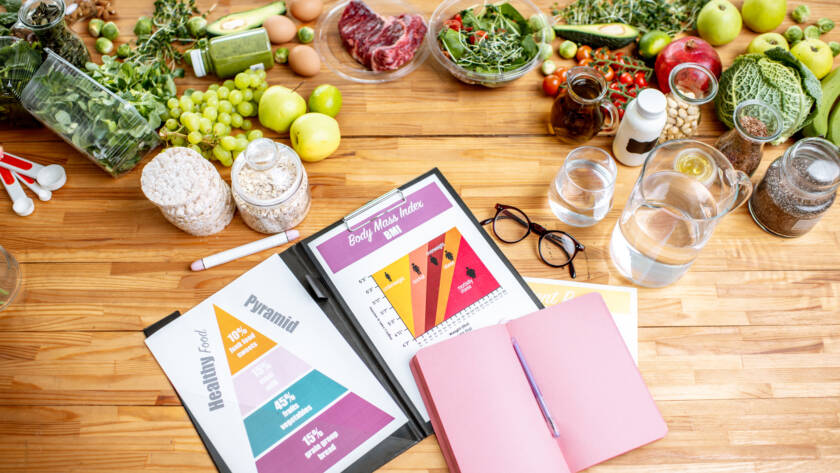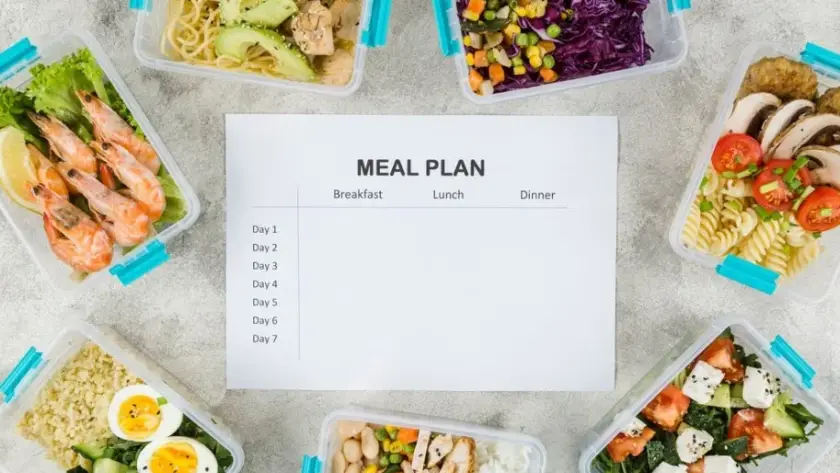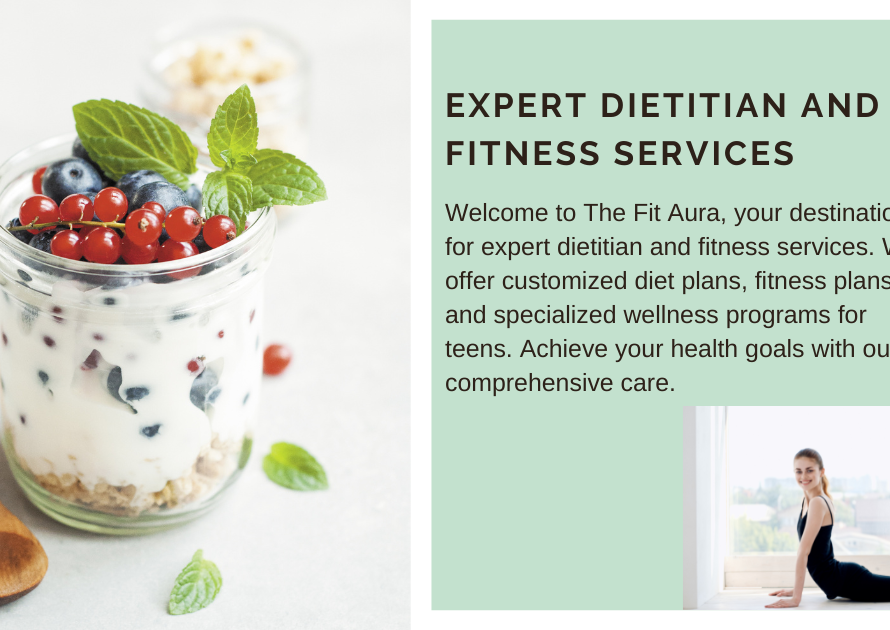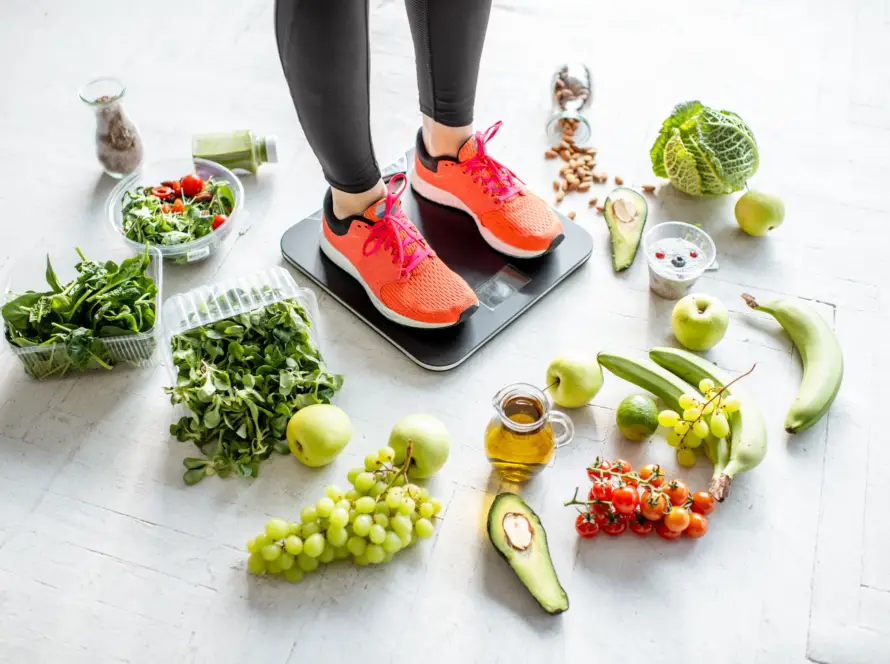Best diet and nutrition program for teens’ growth.
Best diet and nutrition program for teens’ growth. Your body is growing up so fast when you are a teenager. It takes the right foods to make sure that happens and keeps you healthy and full of vitality. This article will consider the best food and diet plan for teens, offering easy-to-understand advice even high school students can follow. Let’s see how you can feed your body for optimum growth and development.
1- Importance of diet and nutrition programs for teens
Growth and Development

During teenagehood, there are huge changes in the body including growth spurts, hormonal changes, developing muscles, etc… Eating properly provides all these important nutrients needed to support these physical differences towards becoming healthy adults.
Energy and Performance
Teens often have many things going on such as school work, sports, and other activities. A balanced diet helps in maintaining energy levels; improving concentration as well as enhancing physical performance.
Long-Term Health
Adopting healthy eating habits during adolescence is a starting point for a healthier life. Proper nutrition prevents chronic diseases including diabetes thus maintaining one’s weight within acceptable limits.
2- Key Nutrients for Growth: diet and nutrition program for teens

Protein
The main purpose of proteins is to build as well as restore tissues which include muscles. Moreover, it also has crucial roles in the formation of enzymes plus hormones. Rich sources of protein include lean meat, poultry, and fish among others.
Carbohydrates
The major source of energy in our body is carbohydrates which fuel both the brain and muscles hence are very essential during mental plus physical activities like games (Layman et al., 2015). For long-term energy consider complex carbohydrates such as whole grains fruits vegetable legumes among others (Spiller et al., 2014).
Fats
Brain development requires good fats while general cell function needs them too so that they can produce enough hormones (Francis et al., 2014). Have healthy fats like avocado, nuts, seeds, olive oil, and fatty fish (like salmon) in your diet.
Vitamins and Minerals
Calcium which is responsible for bone formation and maintenance of strong teeth as well as vitamin D are key nutrients that teenagers should not ignore. These two nutrients can be obtained from foods like leafy greens, dairy products, and fortified plant milk among others including sunlight exposure.
Iron on the other hand helps in transporting oxygen via blood circulation. It’s a nutrient found in such foods as red meat poultry fish beans etc while cereals too contain some of it.
Vitamin C helps the body absorb iron while boosting the immune system. Such fruits as oranges strawberries bell peppers or broccoli contain this particular vitamin.
3- Building a Balanced diet and nutrition program for teens

Breakfast
Breakfast is considered to be the main meal of the day because it provides the energy necessary to start your day on a high note. A good breakfast is supposed to be balanced with proteins carbohydrates and good fats.
Examples:
- Wholegrain cereal with milk and banana
- Greek yogurt with berries together with granola
- Scrambled eggs served with whole grain toast and avocado slices.
Lunch
A nutritious lunch ensures consistent energy levels throughout the day. Eat different food groups so that you have a balance in your meal during lunch hour.
Examples:
- Turkey and cheese sandwich on whole-grain bread with baby carrots beside it
- Quinoa salad mixed vegetables chickpeas vinaigrette dressing
- Chicken wrap mustard greens tomatoes hummus
Examples:
- Grilled salmon with brown rice and steamed broccoli
- Quinoa and stir-fried tofu and mixed vegetables
- Spaghetti and side salad with marinara sauce, hamburger lean ground
Snacks
Selecting healthy snacks can help you have energy throughout the day and not overeat during meals. Go for nutritious snacks that lack excess sugars or unhealthy fats.
Examples:
- Apple chips plus almond butter
- A few nuts together with dried fruit
- Carrot sticks served alongside hummus sauce
Hydration
Being hydrated is just as important as eating well-balanced meals. Water plays a crucial role in digestion, body temperature regulation, and overall wellness. The goal should be taking at least eight glasses of water daily but more if one is involved in physical activities.
Tips for Staying Hydrated
- Keep a water bottle with you to take sips throughout the day.
- Drink before, during, and after exercise.
- Include fruits and vegetables that contain high amounts of water in your diet.
4- Special Considerations
Vegetarianism /Vegan Diets

A vegetarian diet requires you to include appropriate amounts of proteins such as iron calcium, and vitamin B12. Use different types of plant-based proteins while considering fortified foods or supplements when necessary.
Examples:
- Tofu, tempeh, and edamame beans on the menu list?
- Lentils dried peas black-eyed peas processed beans?
- Fortified plant milk plus cereals?
- Food Allergies/Intolerances
People having food allergies or intolerances need to be guided by their doctor them to meet their nutritional requirements. Several alternative protein sources are available that one can consume instead of meat products.
Examples:
- Milk alternatives excluding dairy (e.g., almond milk, soy milk)
- Gluten-free grains other than wheat (e.g., quinoa, rice)
- Nut-free snacks that do not contain nuts (e.g., seeds, fruit)
5- Creating Healthy Eating Habits: diet and nutrition program for teens
Plan Your Meals

Planning your meals can help you make healthier choices and ensure you are eating a balanced diet. Develop a weekly meal plan that includes foods from all the food groups.
Eat Mindfully
Mindful eating means paying attention to your body’s hunger and fullness signals and enjoying each bite. Eating without any distractions like television or phones and appreciating what is being consumed.
Limit Processed Foods
Most processed foods contain high levels of added sugars, unhealthy fats, and sodium. Reduce the intake of fast food, sugary snacks, and sugary drinks. Whenever possible select whole unprocessed foods.
Get Active
Physical activity plays an important role in maintaining good health. Every day should have sixty minutes of moderate to vigorous physical activities at a minimum level. Make exercise fun by participating in enjoyable sports like soccer dancing or biking for instance.
6- Basic Sample Teenagers’ Meal Plan

diet and nutrition program for teens
Day 1
Breakfast
Oatmeal with mixed berries and milk
Lunch
Turkey and cheese on whole-grain bread with baby carrots and an apple.
Snack
Greek yogurt topped with honey and some almonds.
Dinner
Grilled chicken breast, quinoa, green beans boiled or steamed.
Day 2
Breakfast
Spinach, banana, and almond milk smoothie.
Lunch
Veggie wrap filled with hummus, lettuce, tomato slices and cucumber.
Snack
One Apple or Peach or any seasonal fruit.
Dinner
2 chicken shami Kabab plus one egg boiled and one side salad.
Day 3
Breakfast
Scrambled eggs served on whole wheat toast alongside avocado spread on the toast.
Lunch
Quinoa salad combined with some mixed veggies and chickpeas or chicken is tossed lightly in olive oil; sprinkle some sea salt as desired for taste.
Snack
Apple pieces that you can dip in peanut butter if you like.
Dinner
Baking salmon alongside brown rice accompanied by steamed broccoli.
Conclusion
diet and nutrition program for teens to maintain a balanced diet and engage in proper nutrition for them to grow healthy. They can support their overall health and well-being by including a variety of foods from all food groups available, staying hydrated, as well as developing good eating habits. Preparation of meals is critical while mindfulness eating means that one needs to consume the meal consciously. Try avoiding processed foods as much as possible but when you want your body well nourished exercise regularly too.




